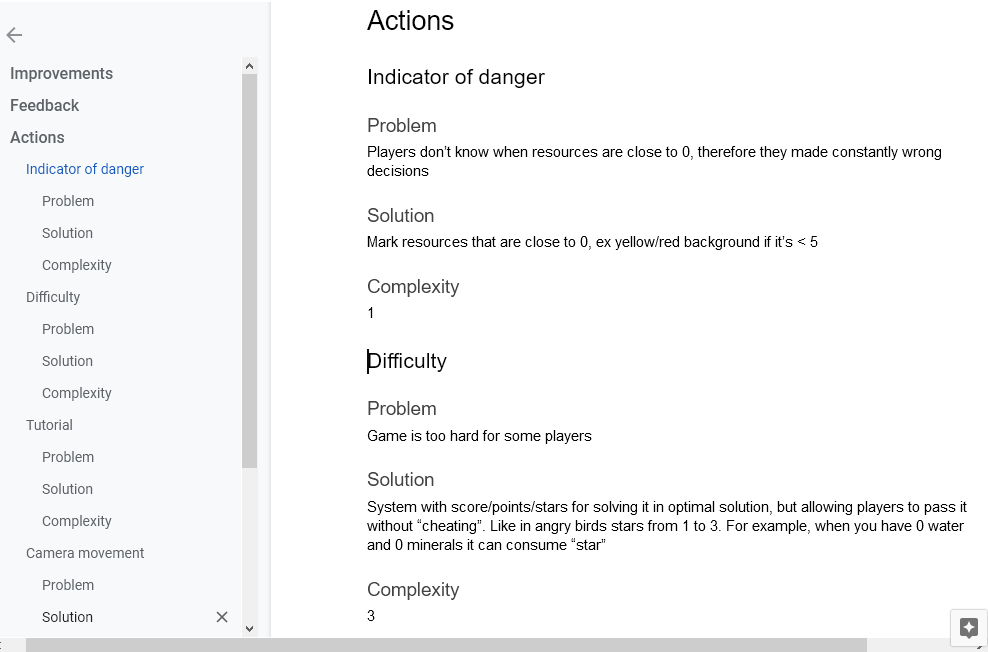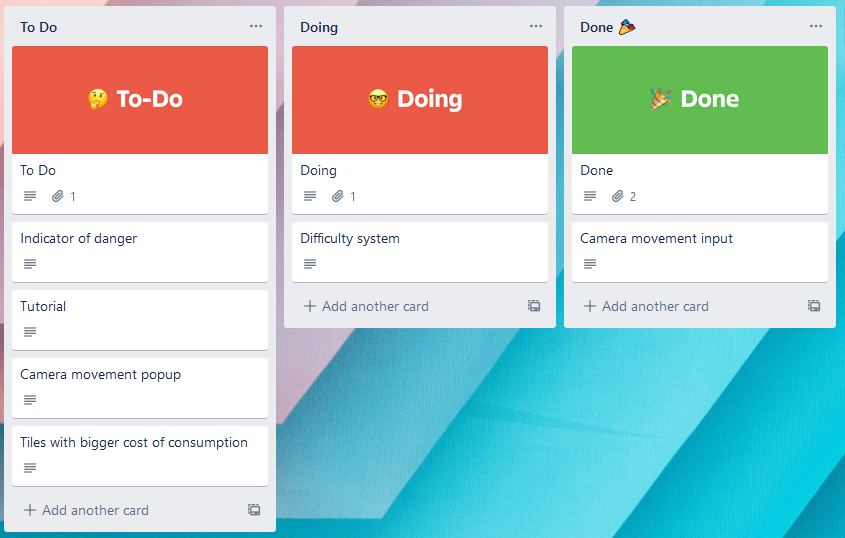The steps loop
To organize my work I follow the steps:
- Gather feedback
- Reflect on it and plan actions
- Prioritise actions by thinking about value and complexity
- Implement few of them (depending how big they are) and release it
- Go back to point 1.
If your list of actions is very small you might do everything in one iteration of a loop. If you already think that it will take couple of weeks/months, then split it. The key benefit of such approach is that you can learn fast how each action work in practice, and depending on that evaluate what other actions need to be taken.
Gather feedback
The main thing to understand is that feedback (no matter if good or bad) is a gift, so accept it and use it to reflect on your game. There are games that I loved and still would see many ways to improve them. Exception from it is a toxic feedback, that one just ignore..
Sources of feedback:
- Comments section on your ldjam game page
- There are great and you can find some tips there, but generally they focus on things people like so I would not use it as the only source of feedback
- Send your game’s link to your friend, but ask them to share a screen and play it while you are watching
- I started doing it since last year and it’s a game changer. You will find out how different type of people have different problems, and how some obvious things to you, might be complete blockers for others.
- Ask streamers to play your game
- We have more and more people willing to stream your game and I advice to use it as it’s a win win relation. Especially if you don’t have a big base of gamers friends. Some of the streamers are gamedevs themselves or just people who understand the industry so they can give you feedback that might be even better than the one coming from casual gamer. Thanks one more time @justcamh for streaming and feedback you gave me.
You might be surprised how many different (sometimes contradicting) suggestions you will get, so I advice to write them down the moment you hear it and evaluate them later.
Reflect on it and plan actions
Go through your feedback, decide which of the changes and in what form you want to implement. In my case I analyse feedback in format of:
- what is the problem
- what is a potential solution
- what is a complexity to implement it
Sample of such analyse for my ldjam game:

Prioritise actions by thinking about value and complexity
Complexity
I never find time-based estimation accurate. Therefore I try to estimate complexity. I pick one action (let’s call it a reference action) and assign them random value (like 3). Then I pick another action and ask myself? Do this action looks harder to implement than the reference action? If yes I assign 4 if no, 2. Now I have 2 reference actions, so I pick another action to estimate and so on..
Value
Simply how much value do you think this action will bring to the game. For example, if game difficulty is so high, that majority of players can not pass 1 level, then I would treat it as blocker and assign highest value.
Prioritisation
Prioritise actions that have high value and low complexity. Keep the ones with lower value and high complexity at the end. Maybe after first iteration(the steps loop section) you will find new better actions to do.
Even I’m a single dev, I find useful to put the actions in some kind of a board, like trello board:

That way I’m not lost, and I find it easier to focus just on one thing. Going back to paused project is also easier if you have a board with indicator where you stopped last time.
Conclusion
I hope you find it helpful.
I will end with link to great gamasutra’s article that is talking about Taking_your_game_from_jam_to_commercial_release
No comments:
Post a Comment